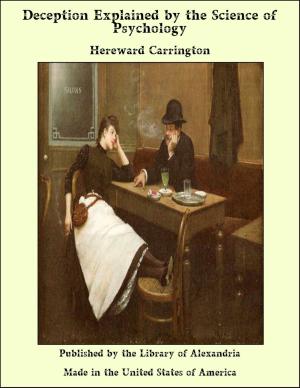A Reckless Character and Other Stories
Nonfiction, Religion & Spirituality, New Age, History, Fiction & Literature| Author: | Ivan Sergeevich Turgenev | ISBN: | 9781465590091 |
| Publisher: | Library of Alexandria | Publication: | March 8, 2015 |
| Imprint: | Language: | English |
| Author: | Ivan Sergeevich Turgenev |
| ISBN: | 9781465590091 |
| Publisher: | Library of Alexandria |
| Publication: | March 8, 2015 |
| Imprint: | |
| Language: | English |
There were eight of us in the room, and we were discussing contemporary matters and persons, "I do not understand these gentlemen!" remarked A.—"They are fellows of a reckless sort…. Really, desperate…. There has never been anything of the kind before." "Yes, there has," put in P., a grey-haired old man, who had been born about the twenties of the present century;—"there were reckless men in days gone by also. Some one said of the poet Yázykoff, that he had enthusiasm which was not directed to anything, an objectless enthusiasm; and it was much the same with those people—their recklessness was without an object. But see here, if you will permit me, I will narrate to you the story of my grandnephew, Mísha Pólteff. It may serve as a sample of the recklessness of those days." He made his appearance in God's daylight in the year 1828, I remember, on his father's ancestral estate, in one of the most remote nooks of a remote government of the steppes. I still preserve a distinct recollection of Mísha's father, Andréi Nikoláevitch Pólteff. He was a genuine, old-fashioned landed proprietor, a pious inhabitant of the steppes, sufficiently well educated,—according to the standards of that epoch,—rather crack-brained, if the truth must be told, and subject, in addition, to epileptic fits…. That also is an old-fashioned malady…. However, Andréi Nikoláevitch's attacks were quiet, and they generally terminated in a sleep and in a fit of melancholy.—He was kind of heart, courteous in manner, not devoid of some pomposity: I have always pictured to myself the Tzar Mikhaíl Feódorovitch as just that sort of a man.
There were eight of us in the room, and we were discussing contemporary matters and persons, "I do not understand these gentlemen!" remarked A.—"They are fellows of a reckless sort…. Really, desperate…. There has never been anything of the kind before." "Yes, there has," put in P., a grey-haired old man, who had been born about the twenties of the present century;—"there were reckless men in days gone by also. Some one said of the poet Yázykoff, that he had enthusiasm which was not directed to anything, an objectless enthusiasm; and it was much the same with those people—their recklessness was without an object. But see here, if you will permit me, I will narrate to you the story of my grandnephew, Mísha Pólteff. It may serve as a sample of the recklessness of those days." He made his appearance in God's daylight in the year 1828, I remember, on his father's ancestral estate, in one of the most remote nooks of a remote government of the steppes. I still preserve a distinct recollection of Mísha's father, Andréi Nikoláevitch Pólteff. He was a genuine, old-fashioned landed proprietor, a pious inhabitant of the steppes, sufficiently well educated,—according to the standards of that epoch,—rather crack-brained, if the truth must be told, and subject, in addition, to epileptic fits…. That also is an old-fashioned malady…. However, Andréi Nikoláevitch's attacks were quiet, and they generally terminated in a sleep and in a fit of melancholy.—He was kind of heart, courteous in manner, not devoid of some pomposity: I have always pictured to myself the Tzar Mikhaíl Feódorovitch as just that sort of a man.















